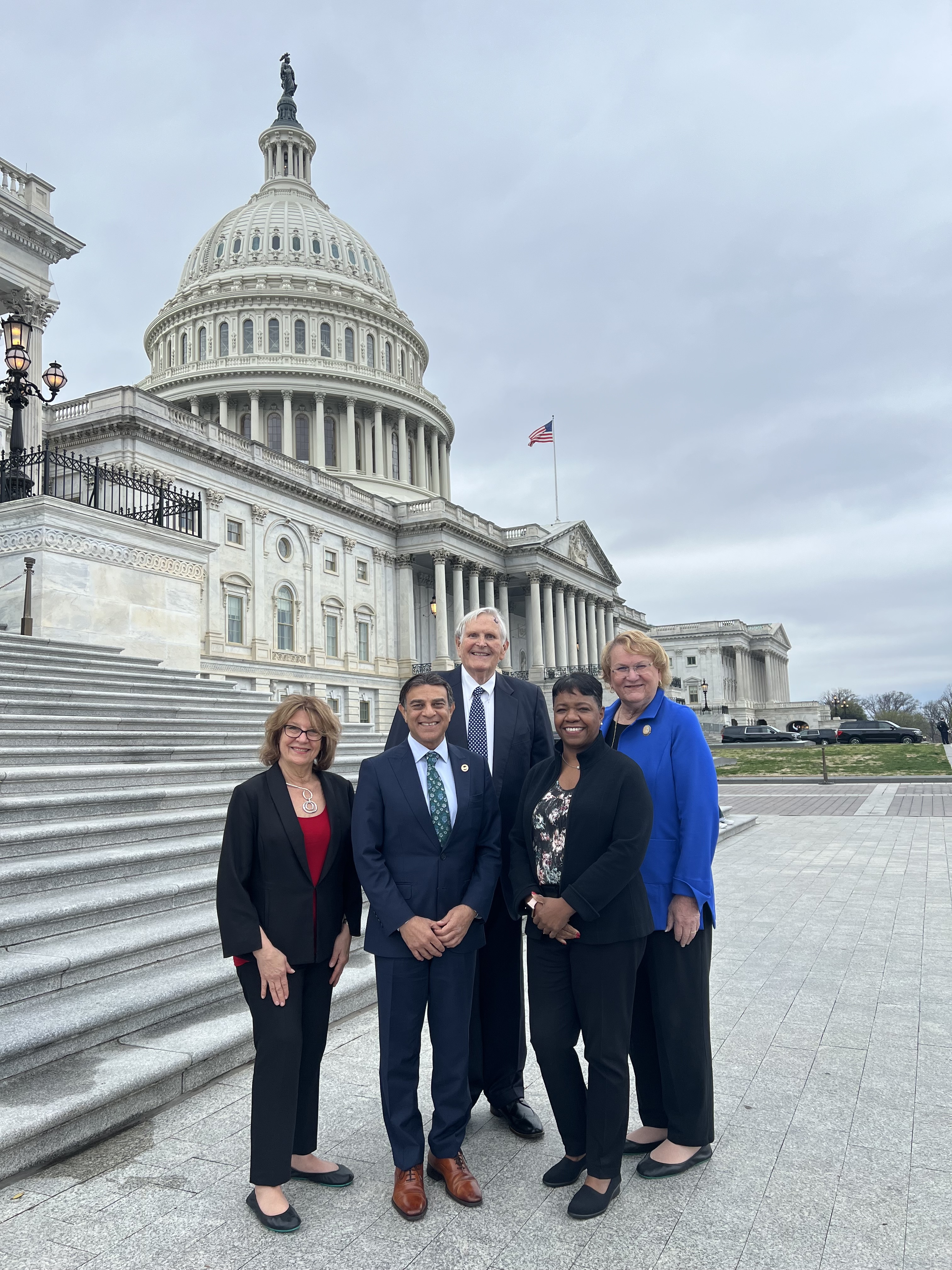Housing and homelessness top issues at federal lobby meetings
Cal Cities leadership met with federal lawmakers on Capitol Hill earlier this week to lobby for greater federal support for a range of top city priorities, including affordable housing, homelessness, public safety, climate change, and fiscal sustainability.

The meetings were organized by Cal Cities to take advantage of the annual Congressional City Conference and advocacy day organized by the National League of Cities. League of California Cities President and Artesia Council Member Ali Sajjad Taj, Second Vice President and Palm Springs Council Member Lisa Middleton, Executive Director and CEO Carolyn Coleman, and a delegation of 150 other California city officials attended the conference.
Cal Cities officers met with Sen. Alex Padilla, Representatives Adam Schiff, Ken Calvert, Kevin Mullin, and Robert Garcia, as well as staff from Sen. Dianne Feinstein, Rep. Barbara Lee, and Rep. Kevin McCarthy’s offices.
Top of the agenda was California's housing affordability and homelessness crisis. Cal Cities urged lawmakers to support the Housing for All Act of 2022 (S. 3788/ H.R. 6989), which would allocate nearly $532 billion nationwide to reduce homelessness and increase affordable housing. The Cal Cities-supported Fighting Homelessness Through Housing and Services Act (S. 24/ H.R. 516) would provide $5 billion in grants to help local governments reduce homelessness.
Cal Cities also advocated for continued public safety investments, particularly the Community Oriented Policing Services (COPS) program. Historic police retention and recruitment challenges are exacerbating California’s high crime issues. The COPS program directed over $12 million in hiring grants to California local governments in 2022, resulting in the hiring of nearly 100 officers.
Staffing challenges are also hindering cities' ability to respond to the statewide substance use crisis. Reducing the number of opioid-related overdoses requires a strong partnership between all levels of government. Cal Cities called on lawmakers to provide law enforcement and local governments with additional assistance and to reduce the illegal trafficking of fentanyl.
Disaster preparedness was a top focus as well. Wildfires, droughts, and historic winter storms have created a vicious cycle that has devastated communities and put them in uncharted territory. The federal government owns about 45% of the land in California, making interagency partnerships a must.

Bills like Senators Feinstein and Padilla’s S. 188, a multipronged approach to wildfire mitigation and recovery, are critical to California’s efforts to prepare for and fight wildfires. Similarly, more collaboration between states and the federal government, as well as federal funding, is needed to resolve the state’s drought conditions.
Last, but not certainly least, was fiscal sustainability. The federal government’s fiscal health directly affects cities’ ability to keep their communities healthy, safe, and vibrant. Lawmakers must reach a bipartisan agreement on the debt ceiling. A federal default on financial markets and borrowing costs could impact city operations, as municipalities vie to make their debt offerings more attractive in the marketplace.
Cal Cities also applauded federal lawmakers for the expanding eligible uses of American Rescue Plan Act funding and cautioned against cutting domestic discretionary spending, which would force service cuts when many communities are still recovering from the impacts of the COVID-19 pandemic.
